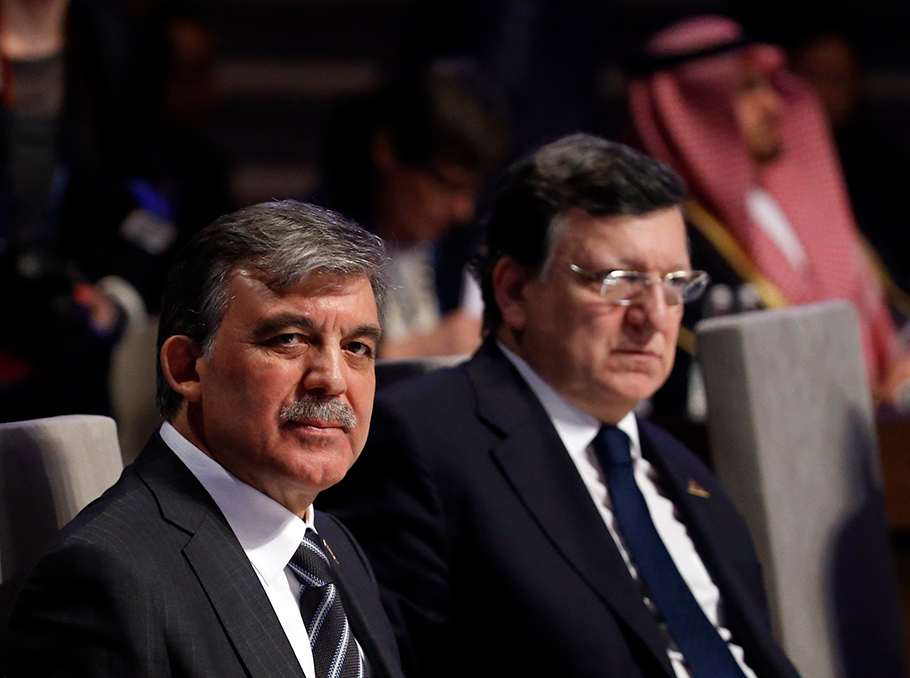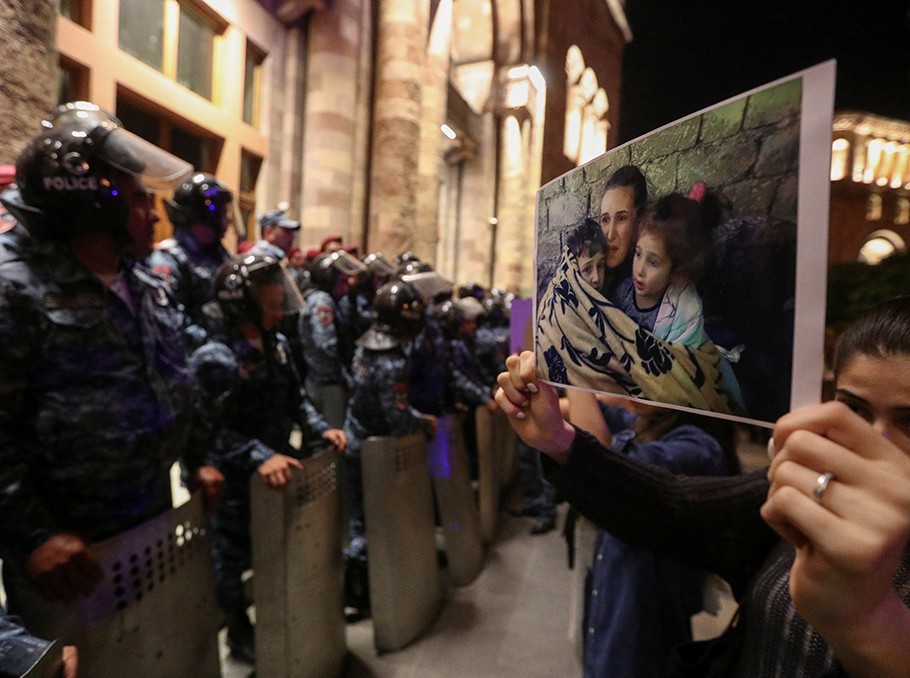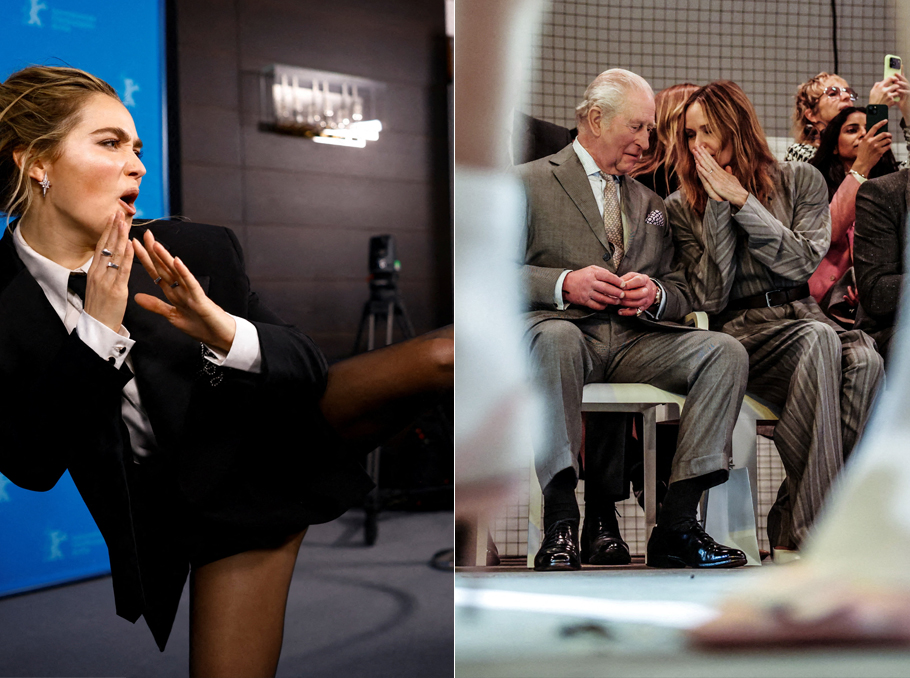The project was implemented by Mediamax and Batumelebi & Netgazeti, with the financial support of the Media Initiatives Center within the framework of the “Creation of Independent Media Content” grant program.
“My dream is to return to Artsakh:” 6-year-old Aram, who “can do everything”
“I am Aram and I can do everything (in Armenian language: Aram – amen inch karam (I can do everything)-ed.),” says 6-year-old Aram Gharakhanyan from Artsakh when I ask to introduce himself.
We are talking with him in the preschool affiliated to Yerevan Ashot Navasardyan School No.196, where Aram now attends classes after being forcibly displaced from Artsakh (Nagorno-Karabakh) and settled in Armenia in September 2023.
As the Minister of Education, Science, Culture and Sports of the Republic of Armenia said on September 27, 2023: “Every third person who came to Armenia from Artsakh is a child.” As of October, 7, 2023, 7 996 children aged 0-5 and 21,266 children aged 6-19 forcibly displaced from Artsakh have been registered in Armenia.”
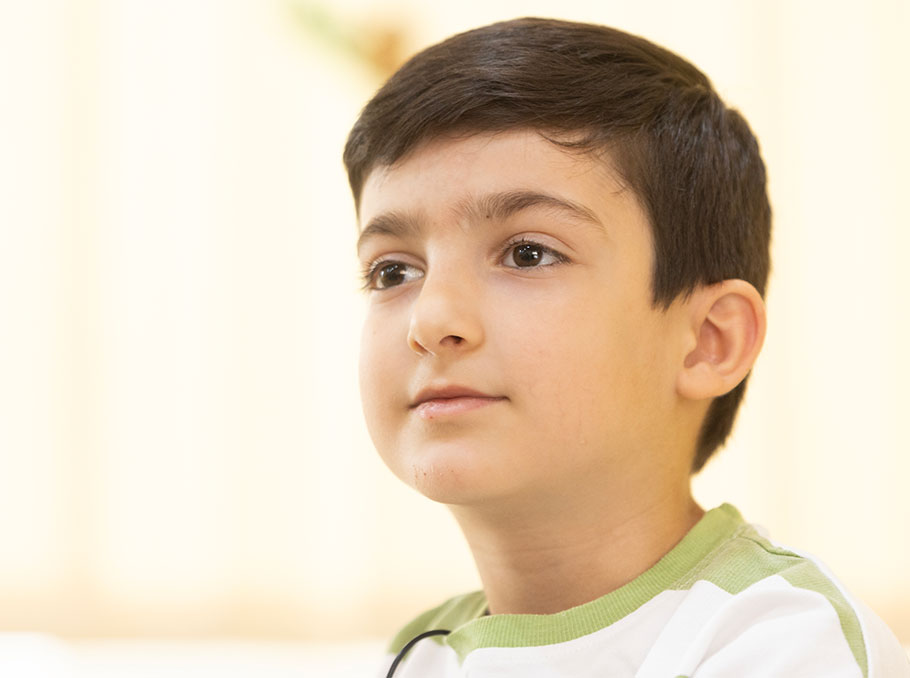 Aram Gharakhanyan
Aram GharakhanyanPhoto: Mediamax
Tag, hide-and-seek, and the “post” that protects the home
“We lived in Karabakh. It was very good there. I was playing very well and in summer I was going to the pool. My mum was helping me to swim. This is the way we lived in Karabakh. Then we heard the first shells and came to Yerevan,” the 6-year old boy tells me in Artsakh dialect when asked how he lived in Artsakh.
Aram’s family had to leave their hometown Stepanakert in September 2023, along with more than 100 thousand Armenians.
“In Stepanakert, I went to Sose kindergarten, then to a preschool facility. My teacher there was Miss Anna. I had friends, we played tag and hide-and-seek. We even had toy weapons, we built a post to protect our homes,” says the 6-year-old child, who from that age had to realize that the home always needs protection.
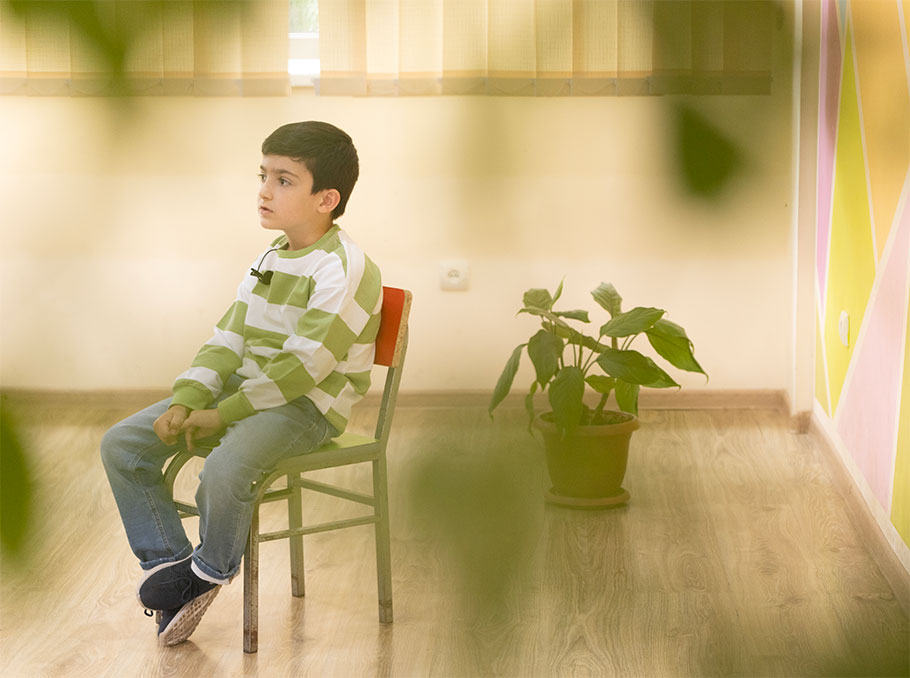 Aram Gharakhanyan
Aram GharakhanyanPhoto: Mediamax
Aram’s mother, Lira Mirzoyan, remembers that when leaving Artsakh, she closed the door of the house as if they would return in 10-15 days.
“I was consciously closing it, thinking: let it be safe, we will be back soon. Now we have to face the reality every day, it is very difficult,” says the young woman and adds:
“Thank God, my husband’s brother lives in Yerevan and they received us with great care in their home. Over time, we found an apartment for rent, moved and started thinking about children’s education. Aram was admitted to the preschool affiliated to Ashot Navasardyan School No.196. I will not forget the warmth with which the director and the entire staff welcomed us on the first day. I also have two daughters, 16 and 12 years old. The eldest will graduate from school this year and is considering studying economics. It is true that we still do not have the opportunity for additional classes to prepare for university admission, but she tries to acquire the necessary knowledge on her own. My 12-year-old daughter was a student at Anania Shirakatsy lyceum in Stepanakert. After we moved here, the Yerevan branch of the lyceum contacted us and invited to continue the education for free. They also provided transport to get to the lyceum. This support is extremely important for us.”
“We will overcome the blockade, if only we live in our homeland”
In December 2022, Azerbaijan blockaded Artsakh, cutting off the only “road of life” connecting Artsakh with Armenia and the outside world. Thus, the region was deprived of food, medicine, other basic necessities, as well as electricity and gas supply.
“There were no toys during the blockade. I have many toys but we could not buy new ones. The toys were not sold anywhere,” Aram recalls and continues to list the items he was the most interested in and which were unavailable:
“Neither ice-cream was sold, nor juices nor anything else.”
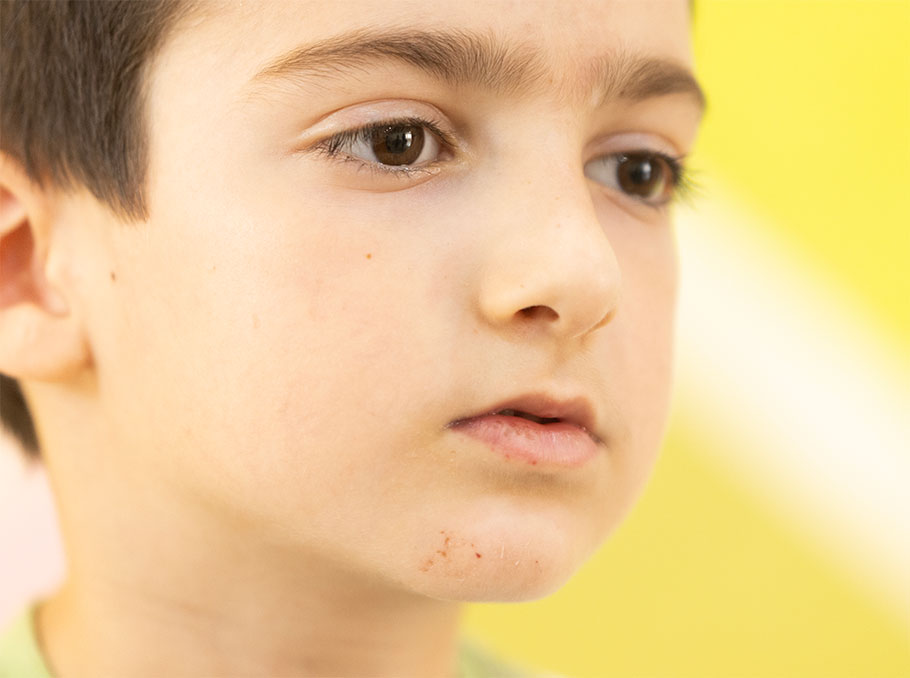 Aram Gharakhanyan
Aram GharakhanyanPhoto: Mediamax
Aram’s mother says that despite the difficult situation, the family tried to do everything possible to ensure that the three children do not lack anything:
“We were literally squeezing bread from a stone. We lived in a house and quickly created a vegetable garden in the front garden. It is true that we have never engaged in farming, but thanks to the Internet we searched, learned and did it (smiles - ed.). We did not get discouraged and we kept saying that this is our struggle, we have to overcome the blockade because we want to live in our homeland.”
The educational institutions Aram and his two sisters were attending were quite far from their home. Despite this, Lira Mirzoyan says that the children never missed the classes. They were leaving the house early, going on foot for a long time to reach school or kindergarten.
“Aram was attending Sose kindergarten at that time. Here they tried to heat the rooms in every possible way so that the children would not get cold. Naturally, there was no gas, but the staff quickly turned on the electric heaters when there was light,” Aram’s mother recalls.
Azerbaijan lifted Artsakh’s blockade in September 2023 by unleashing a full-scale war.
“We came! We came! We came! We finally made it to the house here!”
Aram tells about the day the war broke out and the events that followed it in the tone like he was telling a fairy tale. In this tale, however, good does not win.
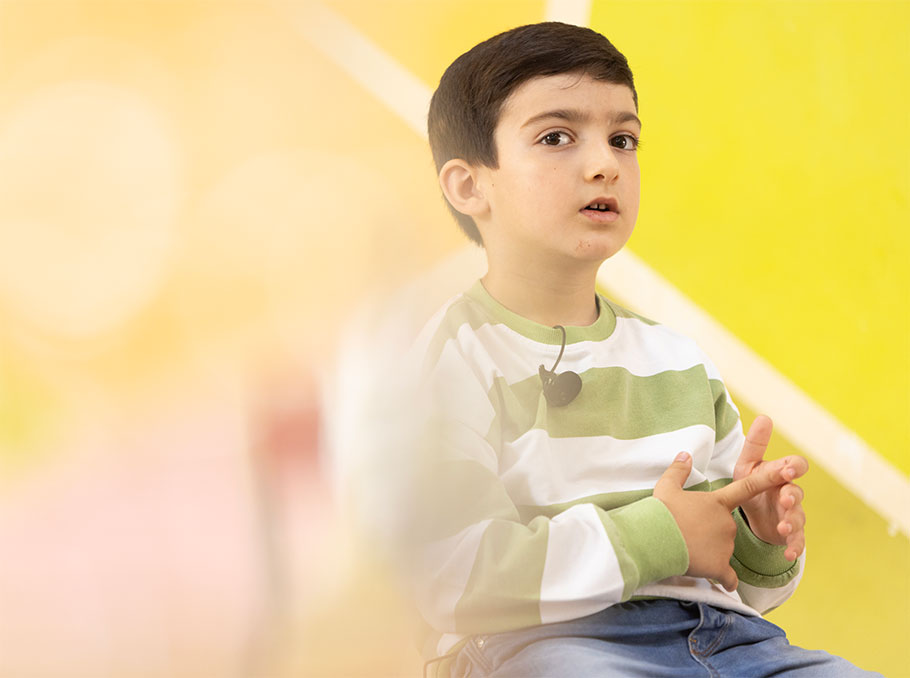 Aram Gharakhanyan
Aram GharakhanyanPhoto: Mediamax
“We were coming from pre-school when the war started. My mother and I heard the first explosion. We started running and saw a garage. A man was standing by the garage. He said - run here quickly! We went inside and saw lots of children crying. I told everyone, ‘Do not cry, ours are shooting!’ Then a car came after a child, took him and left. We waited for a long time, and then we got into someone else’s car and went to a basement of a school. It was full and everyone was crying. I was hungry. I told my mother about it, and an older girl gave me a piece of bread to eat. Then a man gave me water. I drank and fell asleep on my mother. We stayed in the basement for a long time. Then we traveled for two days (from Artsakh to Armenia - ed.). I was tired. My father’s friend gave me grapes, my mother gave me a piece of bread, and neighbors gave me water. That’s how we came-came-came and finally made it to the house here. I did not take anything from my house. My dream is to go to Karabakh.”
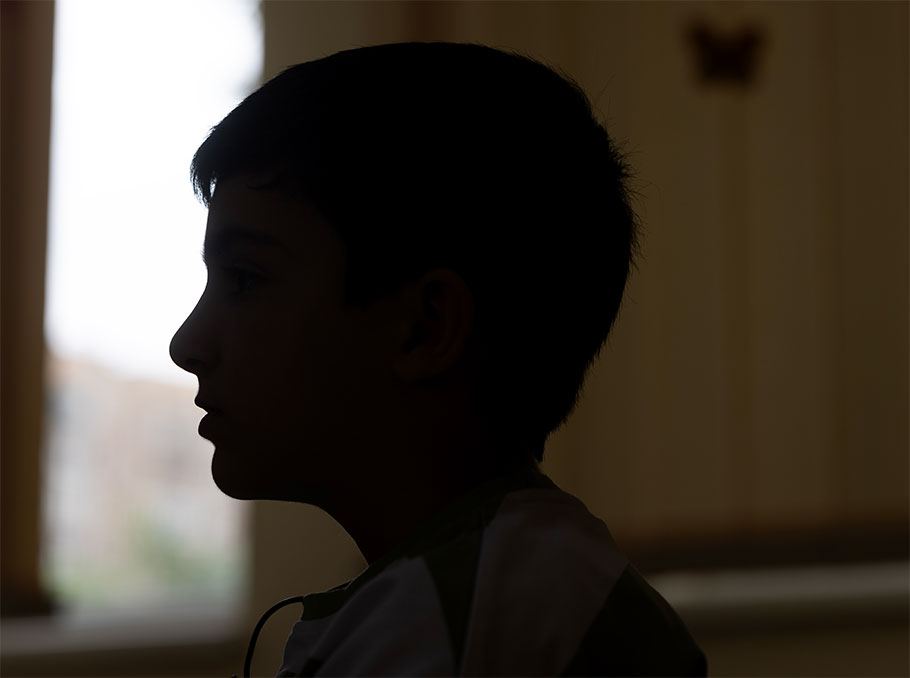 Aram Gharakhanyan
Aram GharakhanyanPhoto: Mediamax
Aram’s mother remembers that her son’s behavior on September 19 surprised her:
“I was worried about him, yet he went to everyone in that garage and basement, saying, ‘Stay calm, don’t cry.’ He would approach me, “lift” my eyebrows with both hands, saying, ‘Hold it like this, don’t cry anymore.”
The new pre-school facility
Aram feels good in the new pre-school facility.
“I like it here. We play with toys, paint with colors, work with colored papers. I have new friends here: Samvel, Alex, Arsen, there are many.”
Here, his daily life is filled not only with games, but also with educational events.
“Now we are preparing for a chess event. After it, we will go to school. I really, really want to go to school,” says the 6-year-old boy.
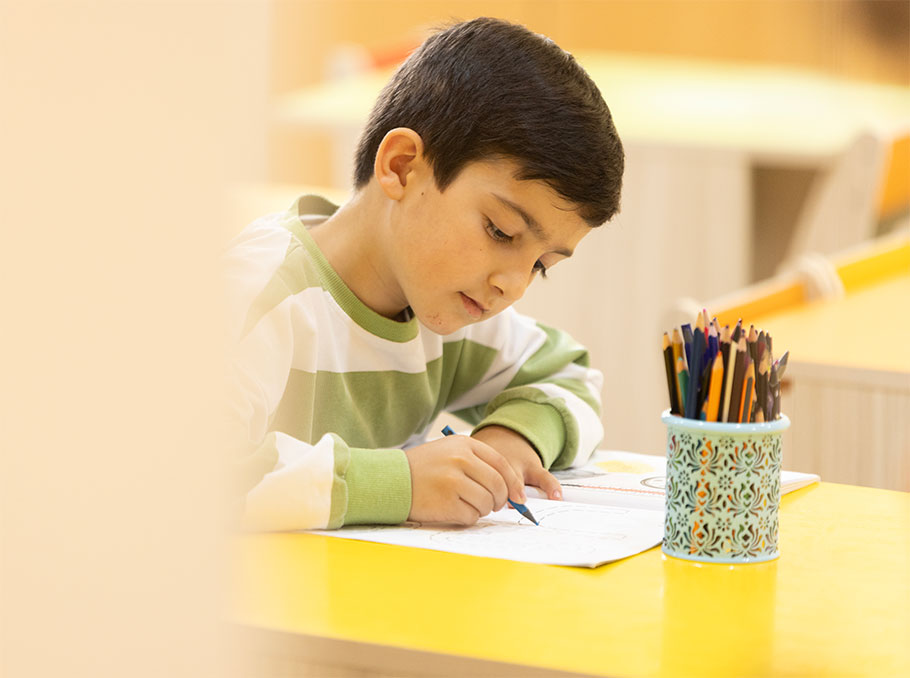 Aram Gharakhanyan
Aram GharakhanyanPhoto: Mediamax
Aram’s kindergarten teacher, Marine Muradyan, says that after the forced displacement of Armenians, eight children from Artsakh were admitted to the preschool affiliated to Ashot Navasardyan School No.196.
“During this time, two families moved out of the country, and now we have six children from Artsakh. The most important principle for us is that we are all family and friends here. So the children who survived those difficult times immediately received love and affection from the other children here.”
According to Marine Muradyan, Aram is very capable child, he learns what he hears at once and actively participates in all events.
“I have noticed a lot of protective and helping qualities in him. Once he drew a picture with the inscription: “I used to defend Artsakh, now I defend the streets of Zovuni” (at that time, Aram’s family lived in Zovuni settlement near Yerevan - ed.). Even if someone suddenly hurts the girl sitting next to him, he gets up and says angrily: “Miss Marine, that’s enough, I can’t stand it anymore, this girl is being hurt,” the teacher tells with a smile.
About memories, longing and dreams
Aram’s mother says that the child’s dreams are now about their former home, Artsakh, and returning there.
“Last Sunday we went to Garni Temple and Geghard Monastery. Aram ran over and said, ‘Mum, give me a penny, hurry up!.’ There is a holy well in the Geghard church, where people throw a penny and make a wish. I went after him and saw him saying loudly: ‘I want Artsakh to be ours, I want to celebrate my birthday there’ and he threw the penny into the water. He always remembers the house in Artsakh, makes comparisons. When we moved to a rented apartment, he entered, looked around and said, “Mum, it’s a good house, but ours is better, isn’t it?” I notice that he compares everything: “In Artsakh it was standing here, the swing was here.”
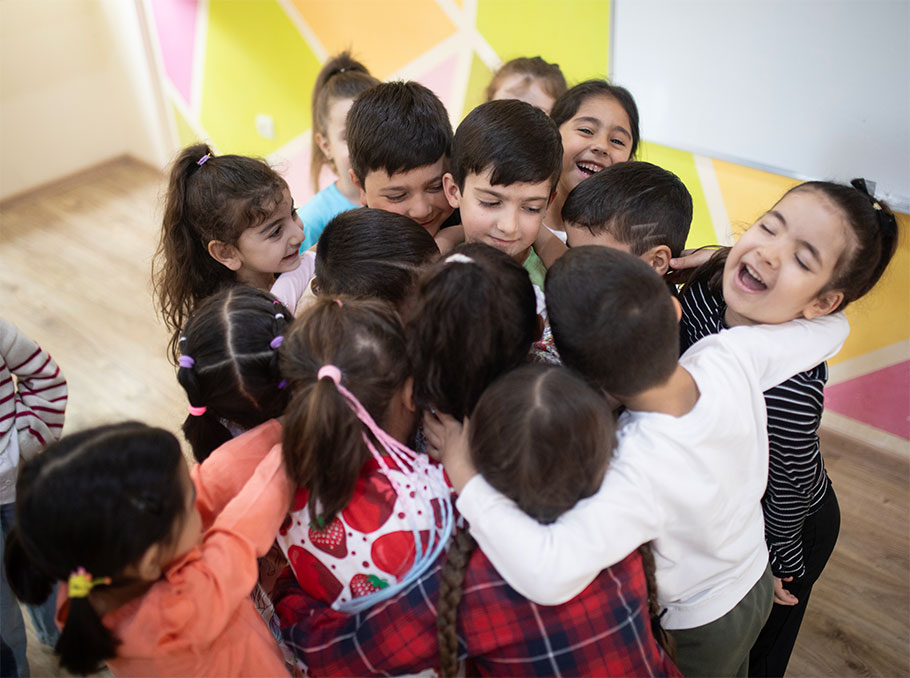
Photo: Mediamax
“Aram, are Yerevan and Stepanakert alike?” I ask the child.
“The flags are alike. It is just that there is no white line in Yerevan’s, but there is one in Karabakh’s,” the child answers.
In the end, I dare to ask what he remembers and misses from Artsakh.
“There was a big yard there, a swing, friends, bicycle. I want Artsakh to be ours again.
“Do you want to go back there?” I ask.
“Very much,” the 6-year-old boy answers with one word and with unwavering determination.
“I like everything here” – 5 years old Ukrainian refugee in Georgia
After the full-scale invasion of Ukraine by Russia, Georgia has become one of the destinations for the Ukrainian refugees. Some, though, have gradually left Georgia. Yet, some families remain in Georgia, while their little children, one could say, even start their lives here. One of those is Keti Ramishvili, just three years old when the war broke out.
Keti, now five, says “she likes everything in Tbilisi, especially the ice rink”. Keti and her family moved to Georgia in summer of 2023.
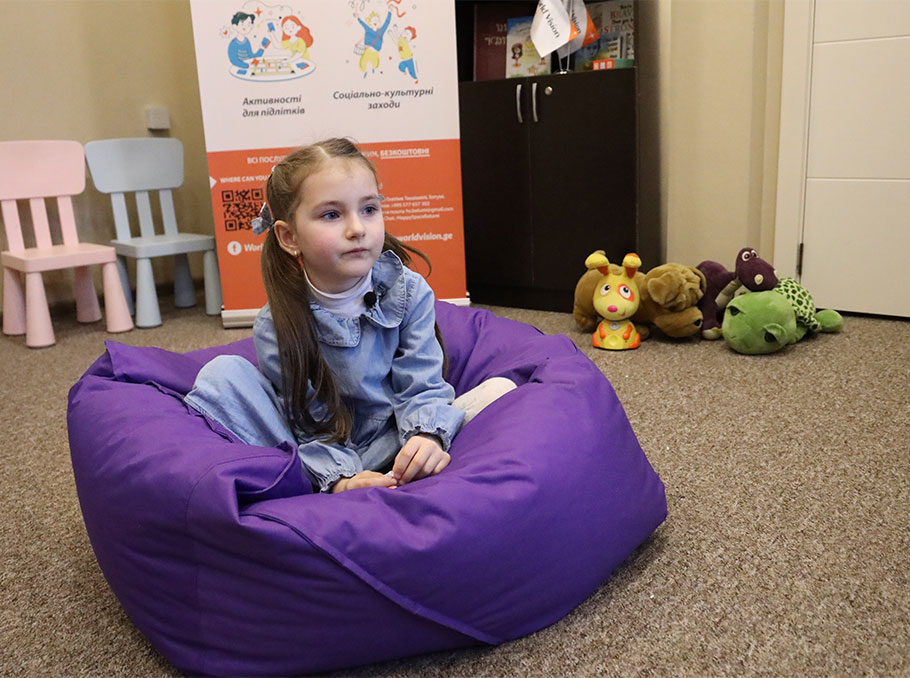 Keti Ramishvili
Keti RamishviliPhoto: Batumelebi & Netgazeti
Her father is Georgian, while mum is Ukrainian. They left Khmelnytska Oblast of Ukraine a year and a half after the war.
Before moving, Keti didn’t speak Georgian, but now she is taking lessons in the kindergarten. Today, she can freely tell her age and speak about activities in the kindergarten in Georgian.
“I wake up early in the morning and begin preparations for the kindergarten. I have a friend there, Mia. We play together. I attend different classes and learn Ukrainian, Georgian and English,” says Keti.
The Tbilisi-located place where Keti spends her days was created within the framework of “Happy Space”. It’s like the “World Vision,” which also provides kindergarten services for Ukrainian refugees. The same services are also being used by Keti’s mother, Angela Hedziuk, who is 31.
“Here we learn Georgian, English. They tell us a lot about what our kids are learning here and how we should help them,” says Angela. “We got many interesting events, master classes and psychological support meetings.”
Angela came to Georgia with two daughters. She remembers that the language barrier, initially, made it hard for the kids to adapt in Georgia.
“The first two months were tough, they didn’t understand anything. But then they began going to the kindergarten, learned Georgian a bit and everything became easier. Besides that, they liked everything from the very beginning,” recalls Angela.
The reason for family to leave Ukraine was the safety of their children. With air raid alert sirens screaming all the time, the kids were constantly being taken to the basement, affecting their mental health.
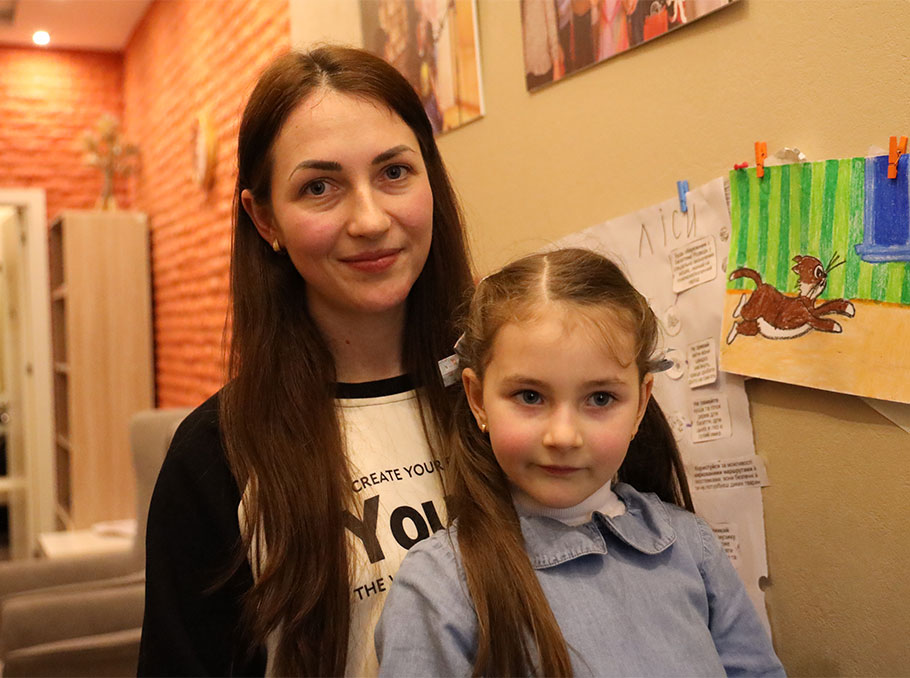 Angela Hedziuk and Keti
Angela Hedziuk and KetiPhoto: Batumelebi & Netgazeti
“The decision was in no way easy, but made for the sake of safety and calmness of the kids,” explains Angela. “In Georgia, we have some relatives and had a place to go. We felt calmer, knowing we wouldn’t have been alone. The family members of my Georgian husband are very warm, friendly people, every single one of them. Some speak Russian, some Georgian. We try to understand each other. All in all, people in Georgia are very friendly, we like it here very much.”
Speaking about the future, Angela says the family plans to stay in Georgia.
“We will live in Tbilisi. Keti will go to school, but in Ukrainian sector. I don’t know Georgian, so I can’t really help her (if she goes to Georgian school - translator’s note). She can read in Ukrainian, knows the alphabet, that’s the reason of choosing Ukrainian sector. We want her to learn Georgian well, since in middle or high school she may move to Georgian one,” says Angela.
Projects supporting Ukrainian refugees
Svitlana Vishnevska, coordinator for the “Happy Space”, tells us that the “World Vision” project by “World Vision International” and “Aktion Deutschland Hilft” (ADH) has been launched to help Ukrainians in Georgia. There are two programs: mental and social, along with informal education.
“Our organization mainly works with children, who are the main beneficiaries,” says Svitlana. “The well-being of kids, though, is intertwined with parents, so we work with every single age group – from zero to 103 years old, as we sometimes joke here.”
According to the numbers provided by Vishnevska, up to 40 kids, aged 5-7, study at the “Happy Space” as of today. Studying involves various activities, such as musical therapy, courses to prepare for school subjects, as well as English language courses. Meetings and master classes for the kids are also available. Often, they are being held at the presence of mothers.
“Elderly, those over 60, make our center feel proud,” says Svitlana. “There is also a club - “Happy Space Talks” - created for and by Ukrainians, where useful information is shared. We also got various youth meetings.”
Vishnevska thinks the social and cultural activities organized in the center help Ukrainians to integrate in Georgia.
The refugees in Georgia are mostly from the Southern and Eastern Ukraine, the regions mostly damaged by the war.
Accordingly, as “Happy Space” coordinators have explained, the kids have some hardships and challenges to overcome.
“Our center employs professional psychologists and therapists. We’ve got activities such as mythodrama, for instance. From time to time, we organize groups that help kids to overcome stress, control emotions and improve their overall state. As of now, we know that the center will function until the end of the year, while activities may go on even after that,” says Vishnevska.
Giorgi Inalishvili, an officer for information and community communication with “World Vision,” tells us that the organization has been helping the refugees in Georgia since the beginning of the war and has several programs to do so.
“We work with almost every single age group. I’d distinguish the work with 5-6 years old kids. Here they have an environment for informal studying, they learn English and Georgian, while also studying Ukrainian to stay connected with the homeland. It’s very important for us to work with them, this helps them with adapting to the Georgian reality and environment,” says Inalishvili.
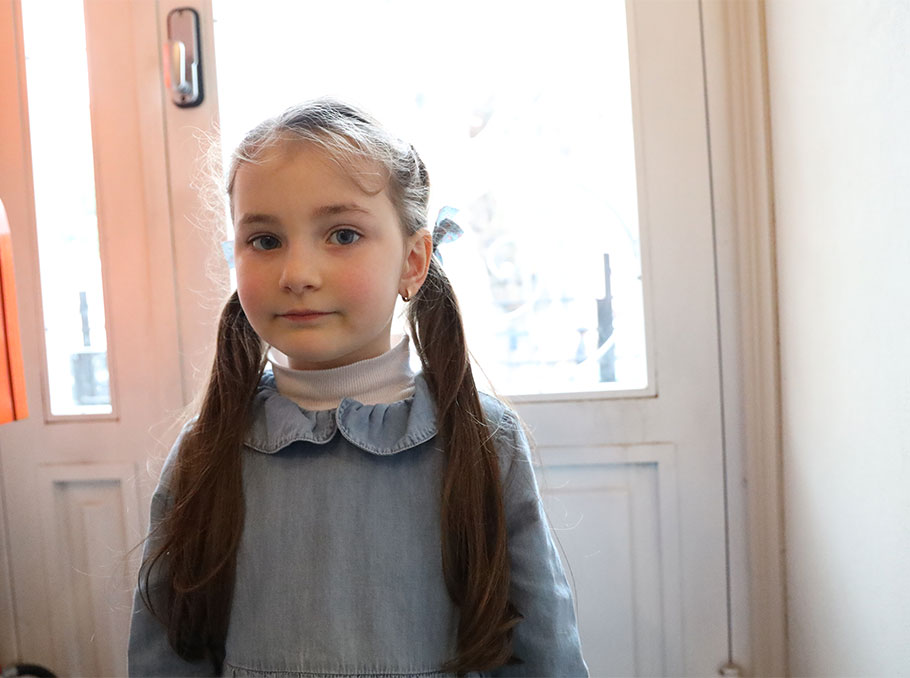 Keti Ramishvili
Keti RamishviliPhoto: Batumelebi & Netgazeti
According to him, not only kids and parents, but teenagers also participate in the program. A corresponding environment has been created for them, too. There are film screenings, followed by discussions.
“We should definitely mention that “Happy Space” is represented not only in Tbilisi, but in Batumi with similar courses for kids, teenagers and partners. We spare no effort to help them adapt in Georgia, while keeping connection with their historical homeland,” adds Inalishvili.
Author: Yana Shakhramanyan, Mariam Beridze
Video: Gayane Yenokyan, Mariam Beridze
Photos: Emin Aristakesyan, Mariam Beridze












